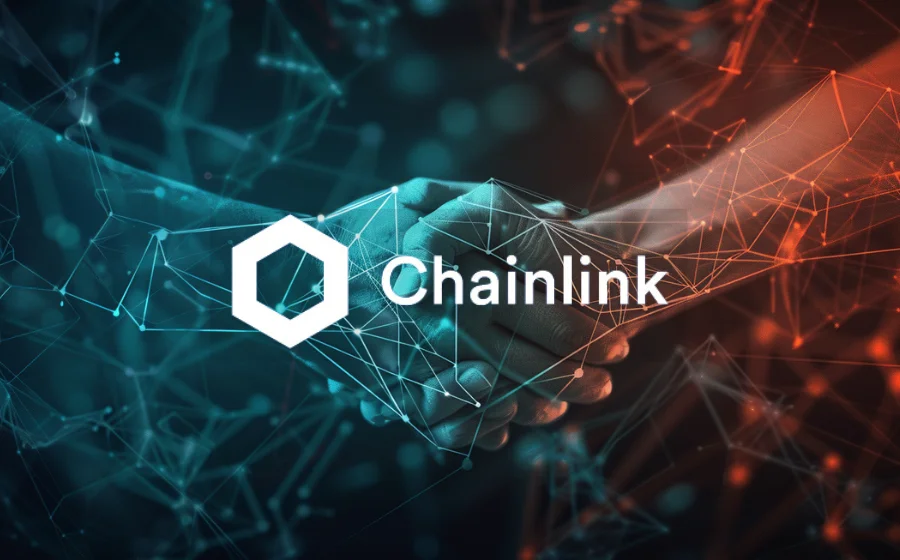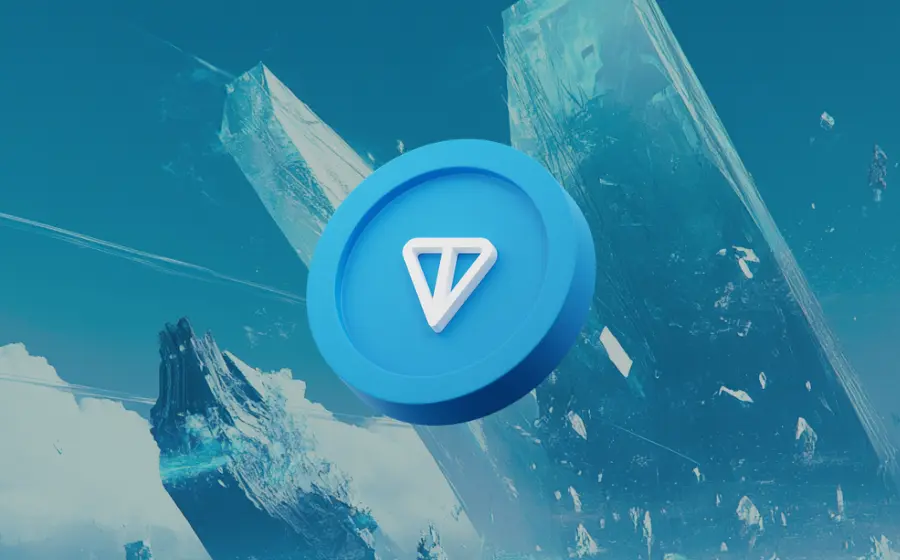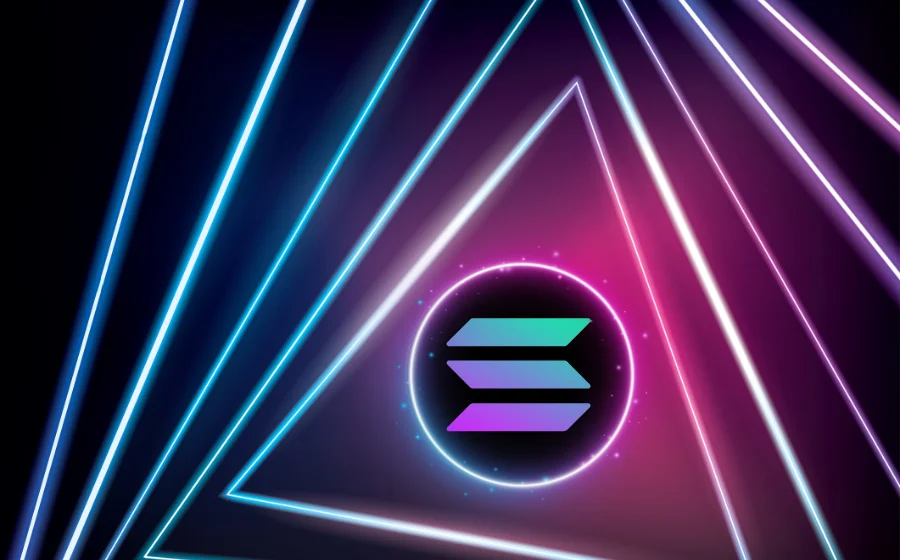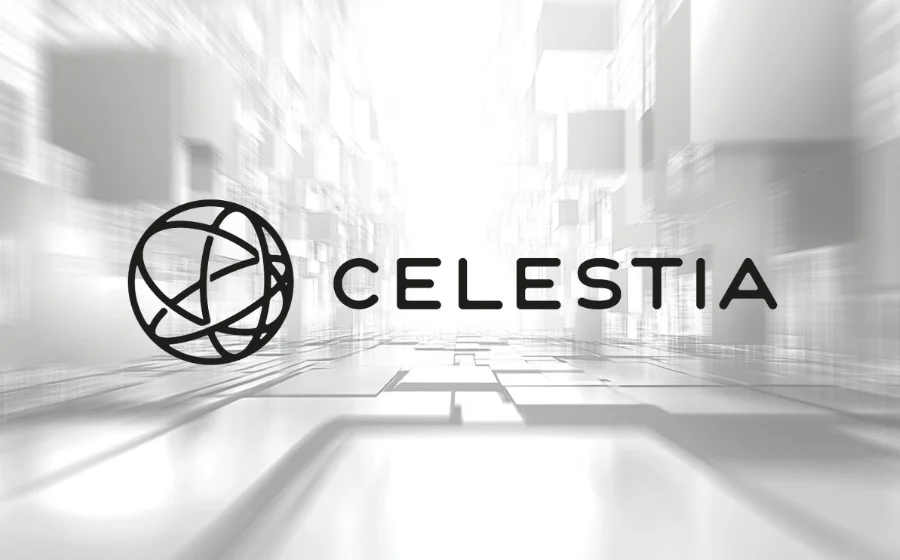
KEYTAKEAWAYS
- Chainlink is a leading oracle service connecting blockchain with real-world data, vital for sectors like finance and insurance.
- Its decentralized model ensures data authenticity and reliability through multi-source verification.
- Chainlink's LINK token plays a crucial role in the ecosystem, driving operations and value appreciation through staking and rewards.

CONTENT
Discover the leading blockchain oracle, Chainlink (LINK), and its decentralized network connecting data buyers with providers. Learn its future prospects, how it works, and the advantages of trading cryptocurrencies.
WHAT IS CHAINLINK (LINK)?
ChainLink is currently the most influential leader in on-chain Oracle services.
Its technology and platform connect external systems with blockchains, enabling the effective use of blockchain technology in external tools, especially in areas like finance, securities, insurance, and trade, where data authenticity is crucial. This has garnered significant attention for Chainlink’s technology and platform. In the future, we are likely to see more integration of external technologies with Chainlink, allowing external data to be integrated into blockchains. This integration of external data with blockchains is known as “Oracles,” which can be centralized or decentralized. Chainlink utilizes decentralized Oracles.
Chainlink employs a decentralized oracle model, meaning it doesn’t rely on a single data source. Instead, it ensures the authenticity and reliability of data through multi-point collection and verification.
Why use a decentralized oracle?
The use of decentralized oracles is primarily to address the “single point of failure” issue prevalent in centralized oracles, characterized by:
- Sudden downtime of API data providers;
- Data providers maliciously altering data for personal gain;
- Hackers attacking the data source and manipulating the data.
Data from centralized oracles may be inaccurate due to these single points of failure, potentially leading to incorrect execution of smart contracts. In contrast, Chainlink has established a decentralized oracle network that disperses data sources and uses reliable hardware servers to avoid single points of failure, ensuring the data’s authenticity and reliability.
LINK is the project token launched by Chainlink to support the operation of the entire Chainlink ecosystem. This cryptocurrency plays a crucial role in the Chainlink ecosystem.
Firstly, data providers need to stake a certain amount of LINK before providing third-party data to Chainlink. This is done to ensure the accuracy and reliability of the provided data and serves as a punishment mechanism for data providers by Chainlink. If the provided data is incorrect, Chainlink will confiscate the LINK staked by the data provider.
Additionally, data consumers who want to access data also need to pay a certain amount of LINK. These LINK tokens are distributed to data providers as an incentive to continue providing accurate data.
This creates a cycle: the greater the demand for data, the more LINK needs to be purchased to pay for it, thus driving up the price of LINK.
Furthermore, data providers stake and lock up LINK to earn more profit, reducing the circulating supply of LINK and indirectly driving up the price of LINK.
HOW DOES CHAINLINK (LINK) WORK?
Chainlink is a decentralized oracle network that connects data buyers with providers. Data buyers specify their needs, and providers bid to supply this data securely.
Buyers select the data they require, and providers make bids to supply it. During the bidding process, providers must deposit LINK tokens as collateral. If a provider maliciously supplies false data, their collateral is forfeited. Once a provider is selected, they are responsible for delivering the data to the blockchain.
Chainlink utilizes an oracle reputation system to aggregate and weigh the data provided. Providers whose data is used are rewarded with LINK tokens.
For example, if we want to obtain real-time Bitcoin pricing, we typically access data directly from CoinMarketCap. However, this poses a problem if CoinMarketCap’s data is inaccurate or if the site suddenly goes down, illustrating the potential issues with centralized oracles. To achieve decentralization, Chainlink collects data from multiple sources and synthesizes it through a weighted aggregation process, ensuring that the data isn’t solely reliant on one provider.
When a smart contract connects to Chainlink to request Bitcoin prices, Chainlink randomly selects different nodes within its network. These nodes, participants in the Chainlink oracle, retrieve real-time Bitcoin prices through APIs connected to external databases. As each node might report slightly different prices, Chainlink also needs to filter through these reports.
Participants, or data providers, are typically required to stake a portion of LINK tokens as collateral. If their data is used by Chainlink, they earn additional LINK tokens as a reward. Conversely, if they report inaccurately, their staked collateral is forfeited.
After gathering the data, Chainlink excludes any extreme outliers and prioritizes data from nodes with good reputations. Finally, it calculates a reasonable price based on this information and communicates it to the smart contract.
This approach ensures the accuracy of the data by leveraging Chainlink’s decentralized nature to diversify its data sources and by using a well-defined reward and penalty system to further enhance data reliability, preventing providers from deliberately submitting false information.
CHAINLINK (LINK) FUTURE PROSPECTS
The future of LINK still holds promise as it addresses the pain points of smart contract platforms in interacting with the outside world, providing them with reliable external data and paving the way for large-scale real-world applications.
Here are a few reasons to look forward to:
1. Chainlink is currently the leader in oracle solutions.
According to CryptoSlate’s oracle ranking list, Chainlink still holds the top position and leads by a significant margin in terms of market capitalization. Competitors that can challenge Chainlink’s position in the oracle market have yet to emerge, with most mainstream platforms utilizing Chainlink’s oracle services.
2. Growing demand for oracle services.
As the blockchain space evolves, there will be an increasing demand for external data in smart contracts and DApps, ranging from insurance and real estate transactions to voting governance, DeFi, or the metaverse.
3. Chainlink is developer-friendly
Using the Chainlink system, professional developers can quickly develop decentralized DeFi projects with minimal time investment, leveraging the immutability of smart contracts once deployed. This means that once developers integrate Chainlink as the data oracle for their smart contracts, it becomes challenging to switch to other solutions, even if competitors emerge, due to the inability to alter on-chain smart contracts.
These points highlight the potential for Chainlink to continue playing a crucial role in the blockchain ecosystem, offering reliable oracle services and facilitating the growth of decentralized applications.
>>> More to read : Pyth Network (PYTH): Solana Oracle
CONCLUSION
LINK plays an important role in the Chainlink ecosystem, serving as a bridge between data providers and consumers. Through staking, payment, and incentive mechanisms, it drives the operation of the entire ecosystem and the fluctuation of the LINK price.
In our daily lives, we rely on trusted third parties to ensure the reliability of data sources. However, in centralized systems, errors in transactions caused by incorrect data can be corrected retroactively.
Smart contracts, on the other hand, lack the ability to verify data authenticity. If a smart contract makes a wrong decision due to incorrect data, the resulting transaction cannot be reversed. This highlights the importance of reliable data sources, such as Chainlink, which has the potential to automate and revolutionize various sectors, including insurance, supply chain management, logistics, gaming, and finance.
For instance, in the insurance industry, integrating Chainlink’s reliable data into smart contracts can streamline the claims process. By using Chainlink nodes to validate hospital visit records, smart contracts can automatically process claims that meet the criteria, reducing friction and enhancing trust between insurers and policyholders.
Despite challenges such as privacy concerns and fraud detection, smart contracts are poised to transform numerous aspects of our lives, with Chainlink playing a crucial role in ensuring their reliability and functionality.
From an investment perspective, Chainlink’s LINK token is integral to the ecosystem, and its value is expected to grow as the adoption of smart contracts and Oracle nodes increases. Recent developments, such as the introduction of LINK trading pairs with stablecoins on exchanges like Binance, further enhance its utility and potential value.
FAQS
- What is Chainlink (LINK)?
Chainlink is a decentralized oracle system with data consumers and providers. Consumers request data, providers bid with LINK tokens, stake forfeited for false data. Chosen provider delivers data, rewarded with LINK tokens based on reputation.
- What is a blockchain oracle?
An oracle serves as the interface between blockchain and real-world data, enabling it to aggregate information and derive the current reasonable price of cryptocurrencies. ChainLink, in particular, leads in providing accurate and timely cryptocurrency price feeds.
- What are Chainlink (LINK) Advantages?
- Chainlink is currently the leader in oracle solutions.
- Growing demand for oracle services.
- Chainlink is developer-friendly.
▶ Buy Crypto at Bitget
ꚰ CoinRank x Bitget – Sign up & Trade to get $20!

















